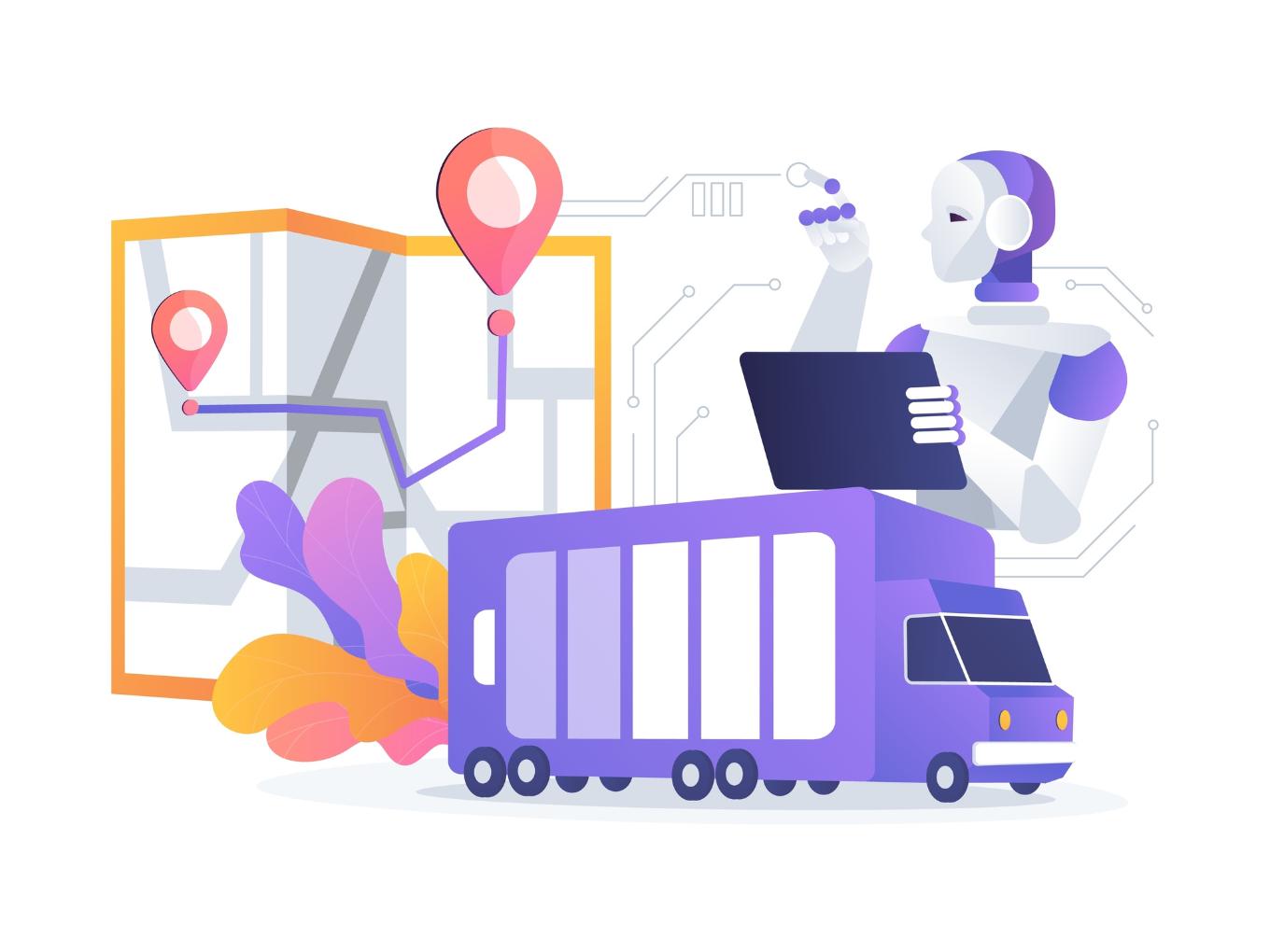How Is Artificial Intelligence Adding To The Last Mile Mileage For Logistics Companies

Once you have successfully placed your order, it gets irresistibly tough not to check the pop-up notification every hour to see how much progress your order has made from the warehouse. The anticipation builds as the package makes its journey, navigating through the maze of logistical necessities to finally reach your doorstep. This eagerness highlights the critical importance of last-mile delivery, the final step in the logistics chain where the product reaches the consumer. This stage is not only crucial for customer satisfaction but also represents a significant portion of delivery costs and challenges for logistics providers.
The last mile of delivery has always been fraught with complexities, from managing traffic congestion to ensuring timely deliveries in densely populated urban areas. The stakes are high: inefficiencies in this stage can lead to increased costs, customer dissatisfaction, and competitive disadvantage. With the rise of ecommerce, the demand for faster, more reliable deliveries has never been greater. Innovations in artificial intelligence (AI) are stepping in to transform last-mile logistics, making it more efficient, predictable, and responsive to consumer needs.
Keeping Tabs: Real-Time Tracking And Visibility
Tracking a package is now an expected feature for consumers. The lack of real-time tracking can lead to frustration and dissatisfaction. However, with the implementation of IoT devices and GPS tracking systems, businesses can provide real-time updates to their customers. This transparency not only improves customer satisfaction but also enhances the overall efficiency of the delivery process.
For MSMEs, real-time tracking and visibility are essential. By leveraging these technologies, businesses can respond quickly to any disruptions or delays, ensuring that customers are always informed about their delivery status.
Smart Communication: AI-Driven Customer Interaction
Timely communication with customers is crucial in the logistics industry. AI-driven communication platforms enable businesses to provide real-time updates, reducing the likelihood of missed or delayed deliveries. By managing customer expectations effectively, businesses can enhance satisfaction and foster loyalty.
For MSMEs, ensuring timely communication with customers is crucial. Implementing AI-driven communication platforms helps businesses stay connected with their customers, providing updates on delivery status and resolving issues promptly. This not only improves customer satisfaction but also builds trust and reliability, essential factors for business growth in a competitive market. Many difference makers in the third-party logistics industry have created proprietary software to enhance communication efficiency. For example, it can be a WhatsApp integration tool that can streamline the buyer-seller process by enabling 24/7 order confirmations and updates.
Failure Is Not An Option: Addressing Non-Delivery Issues
Undelivered shipments can be a major headache for logistics providers, leading to customer dissatisfaction and increased operational costs. Implementing a structured process to handle non-delivery reports (NDR) can significantly mitigate these issues. AI-driven systems can analyse delivery patterns, identify common failure points, and suggest improvements to enhance delivery success rates.
For MSMEs, addressing non-delivery issues is vital. By using AI to manage and resolve delivery failures, businesses can ensure that packages reach their intended recipients promptly. This structured approach not only reduces the incidence of undelivered shipments but also helps maintain customer trust and satisfaction. Effective NDR systems are essential for improving delivery reliability and reducing operational disruptions.
Future-Ready: Predictive Analytics And Automation
Warehousing is another area where AI is making significant strides. By automating sorting and packing processes, businesses can speed up operations, reduce errors, and cut labor costs. Predictive analytics helps businesses anticipate demand, ensuring that products are available when and where they are needed.
For MSMEs, the integration of AI and automation in warehousing is transformative. Predictive analytics helps businesses anticipate demand, ensuring that products are available when and where they are needed. This not enhances operational efficiency but also reduces costs, allowing MSMEs to offer competitive pricing and faster deliveries. The adoption of AI in logistics operations positions businesses to meet the growing demands of the ecommerce market effectively.
The Final Gear: Shift The Lever To AI To Reach The Last Mile
The significance of last mile logistics has soared in recent years due to the exponential growth of ecommerce, changing consumer expectations, and the need for efficient, timely deliveries. Today’s consumers demand shorter delivery times, live tracking, and seamless experiences, forcing providers to continuously innovate and optimise their last-mile operations.The integration of AI in last mile logistics offers transformative capabilities, from optimising delivery routes and enhancing customer communication to predicting demand patterns and automating warehouse operations. By leveraging these innovative technologies, businesses can overcome the complexities of last mile delivery, enhance efficiency, and improve customer satisfaction.
As we look to the future, the role of AI in logistics will only continue to grow. The advancements in AI, analytics, and infrastructure will lead to more widespread adoption and greater effectiveness, positioning businesses to gain a competitive edge in the evolving market landscape. By embracing AI-driven solutions, businesses can ensure faster, more reliable, and cost-effective deliveries, ultimately transforming the last-mile logistics experience for both businesses and consumers.
The post How Is Artificial Intelligence Adding To The Last Mile Mileage For Logistics Companies appeared first on Inc42 Media.
No comments